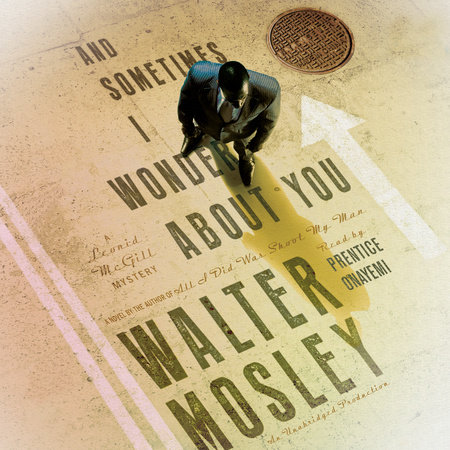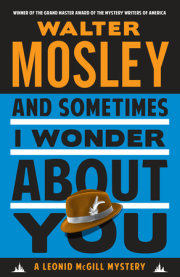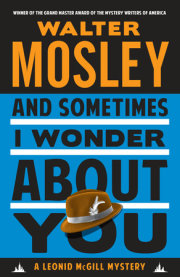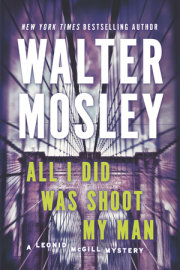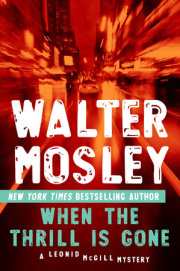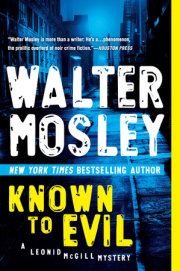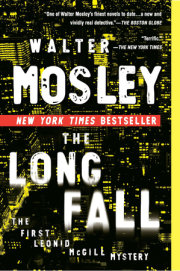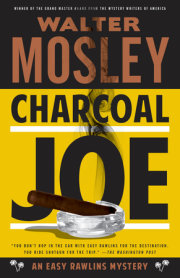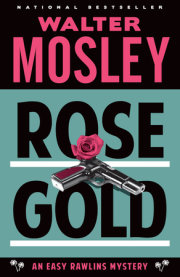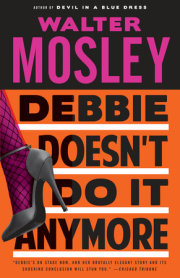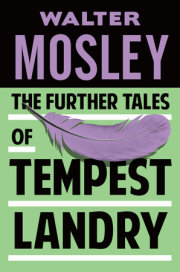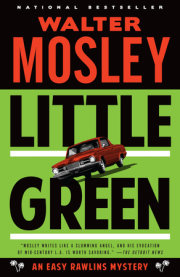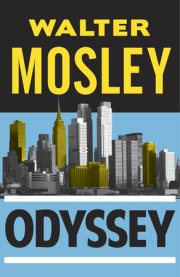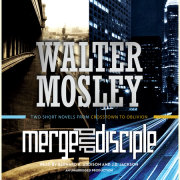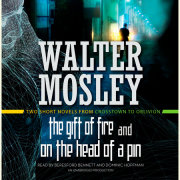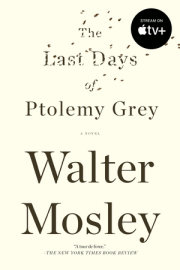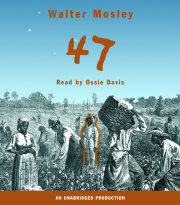1.
Taking the local train from Philly to New York’s Penn Station may not be as smooth as the Acela’s ride but it gets the job done for a few dollars less and sometimes, like that Monday afternoon, the car is nearly empty and a man has time to think.
My nearest neighbor across the aisle was a slim and dapper gentleman, well past retirement and dressed in an out-of-season white seersucker suit with light blue pin-striping. It was cool that fall and he would have done well with a heavier fabric, but maybe that was just the octogenarian’s style—or maybe his only suit. He was napping, talking in his sleep. The unintelligible words came from his lips like a sporadic spoken-word song in another language. Maybe it was a foreign tongue.
Six rows back, I knew, sat a behemoth of a man wearing black-jean overalls and a heavy, long-sleeved blue-and-white-checkered work shirt. From a thick steel chain around the big man’s neck depended a real horseshoe that had never been attached to any hoof.The man was in his forties, over four hundred pounds, with red hair and the raspberry and cream–colored skin of a Norseman. His regular breathing, when you got within two rows, was loud enough to hear over the clacking of metal wheels on metal tracks.
At the front of the car, in a seat facing backward, there perched a small black woman who was somewhere around my age, clutching a red, yellow, and green calico carpetbag by its worn brown leather handle. The fifty-something lady looked worried but thisseemed like a regular state of affairs—not any specific problem that plagued her at that point in time.
Specific problems have always been my stock-in-trade. As a young man I delivered this unwanted commodity; nowadays I remove it—for a price.
A woman came through the semiautomatic door behind the worried grandmother. This potential new resident of our low-occupancy car was harder to define.
She was beautiful. Her bright skin was the russet brown I associated with the Caribbean, her hair was untreated and a little wild, and her eyes a color somewhere between brown and bronze. I noticed her eyes because this was the third time she’d gone pastgazing at me, considering, and then rejecting whatever thought it was that those eyes harbored. Past thirty but nowhere near the next decade, she’d still be lovely when she reached the age of the sleeping man who muttered across the aisle.
I wondered what she might have asked if I had met her expectations. This thought caused me to look around just in time to see her stop at the behemoth’s row. She asked a question and he grumbled something. She asked something else and he shook his headvehemently, gestured with his left hand, and then turned away—which was no mean feat for a man his size.
She nodded at him, almost a bow, and made her way to the end of the car. There she punched the chrome plate that engaged the sliding door.
The passing thought that it might have been nice to hear her question firsthand was soon displaced by the certainty that whatever she said would not have improved my life. In my experience beautiful strangers rarely give as much as they take and they almostalways ask for more.
After she was gone I pulled out my cell phone and entered the characters M‑A‑R, then touched a button that had the image of an upright receiver emblazed upon it. The phone rang once and she answered.
“McGill and Son detective agency.”
I had never asked her to answer the phone like that but Mardi had her own aesthetic and she had become, in just a few years, an indispensable part of my office.
“Hey, Mardi.”
“Mr. McGill. How are you?” Her voice was soft like a satin finish on polished steel.
“Just fine. I get anything on my New York Literary Review ad?”
“No, sir. I checked just this noon.”
I didn’t expect an answer. William Williams was in the wind. It was no great loss; like the dollar bet on a hundred-million-dollar Lotto—you were bound to lose but you had to play.
"A man named Hiram Stent called asking for an appointment anytime today,” Mardi murmured.
“What’s his problem?”
“He didn’t say but it sounded pretty, I don’t know . . . urgent.”
“I’m not coming in today,” I said. “I’m going straight to the sanatorium from the station. Give him a morning slot, first thing.”
“Yes, sir. Are you finished with the Martinez case?”
“Yeah.”
“Did it turn out okay?”
“He ran once,” I said. “Who’s to say he won’t do it again? Twill in?”
“No,” she said but her tone said more.
“Where is he?” “He didn’t call in today. I think he’s probably at home studying the tapes you had me give him.”
There was something off in Mardi’s voice, something that had to do with my favorite son. I would have asked about it but just at that moment I felt a presence at my side. Looking up, I saw the brilliant vision of the beautiful woman who flitted aroundour car like a hesitant butterfly over a sticky flower.
Her dress was a shade deeper than coral, and though it wasn’t tight it expressed her figure just fine.
“I’ll have to call you back, M, something just came up here.”
“On the train?”
“No problem,” I said, “just somebody wanting a section of my paper.”
“See you tomorrow,” she said, and I broke the connection.
“Hello,” I greeted while putting the phone in the breast pocket of my all-purpose blue suit.
“I didn’t mean to interrupt you,” she said. Her voice was somewhere in the lower register of gold. Her black satin purse was cinched at the top like a miniature burlap potato sack.
“No problem. I was just calling in to the office.”
“Oh.” She glanced at the door behind her. “Um . . . can I sit next to you?”
I was on the aisle so she was asking for a window seat—with a buffer.
“Is that what you asked Haystack Calhoun back there?”
She didn’t get the cultural reference but still understood the joke. Smiling and frowning at the same time, she said, “I think he’s afraid of girls.”
“Good for him. Some men never learn that lesson.”
“Have you?” the nameless beauty asked.
If I believed in angels they wouldn’t be the sweet beneficent kind with fluffy wings and halos but rather haughty, removed Valkyries that tore the soul from your dying breast. That kind of angel would have asked the question she put to me. And, I knew,I should have answered like the colossus with the horseshoe necklace.
“My name’s Leonid,” I said, “Leonid McGill.”
“May I sit on the other side of you, Mr. McGill?” she asked.
If I wanted her name I was going to have to work for it.
I grabbed my brown rucksack from the empty seat next to me and then stood making a gesture with my left hand, the same and yet the opposite of the behemoth. She smiled and brushed past me. At that proximity I got a whiff of something both acrid and sweet,like some ancient forests I’d been in. It was a mild scent that caused a strong reaction in a section of my heart that had almost been forgotten.
When she was installed there next to me I knew that the next week or so would be trouble. I smiled and laughed a little. She nodded and then grinned.
Copyright © 2015 by Walter Mosley. All rights reserved. No part of this excerpt may be reproduced or reprinted without permission in writing from the publisher.

